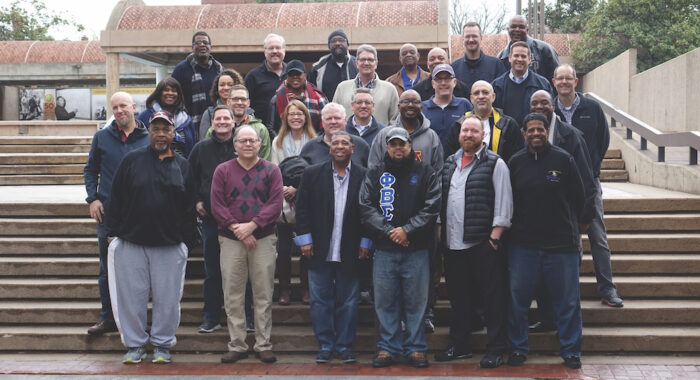Most pastors want to do good, and most church leadership teams want to do the same. Yet we sometimes hear of pastors who have committed adultery, involuntary pastor terminations by church boards, mishandled church finances, unequal church staff treatment, and other issues. Thankfully these examples are not the norm, but they do remind both pastors and churches to be intentional with accountability and hold fast to biblical standards.
Randall Bach, president of Open Bible Churches, called ethical standards “curbs on a road, keeping fellow travelers on course.” He said, “The most effective form of formal and relational accountability is that which is mutual. Just as pastors are accountable to congregations, congregations are accountable for protectively caring for their pastors and for conducting themselves according to ethical standards.”
The Code of Ethics for Pastors, developed by the National Association of Evangelicals in 2012, has become a helpful resource for hundreds of pastors who have committed to live its standards. This fall, the NAE released a companion document, the Code of Ethics for Congregations and Their Leadership Teams, to equip church leadership teams as they relate to their pastors, their congregation, the family of churches to which they belong, and the community in which they live and worship.
A Standard of Accountability
Raymond Baptist Church in Raymond, New Hampshire, was one of the first churches to adopt both ethics codes, where they are used as guides for all staff and volunteer leaders. Leaders review the guides during quarterly ministry team leader meetings. New members of the church see the codes in their membership class, and they are included in the church’s packet of official church documents.
“The ethics codes have been useful in helping new people better understand who we are as a church and how we are accountable,” said Kevin McBride, pastor of Raymond Baptist Church. “Here, when denominational affiliation is becoming less important, they provide a standard to let people see how we are accountable to each other.”
“In general the codes of ethics give voice to the unspoken or misunderstood covenant between pastor, leaders and the congregation. The articulated expectations allow everyone to better understand not only their responsibilities to each other, but expectations of each other,” he said.
McBride also noted that one of the greatest benefits of adopting the codes is that they serve as a “neutral observer” by which both pastors and lay leaders can be accountable.
“As it is not an ‘in house’ document, it gives credibility that it was not created to address a specific internal issue or person. Its biblical foundation also allows people to see that this is not just a business management tool and provides teaching points for both the congregation and leaders to help in their own personal growth,” he said.
Crossing Denominational Lines
In an interview with Christianity Today, Luder Whitlock, executive director of the CNL Charitable Foundation and chair of the drafting committee for the NAE Code of Ethics for Pastors, noted the previous lack of sound evangelical ethics documents.
“Denominations have produced a few things, but most haven’t. The few existing statements tend to be truncated in scope or overly legalistic and rule specific. There is no broad statement or code that everybody adopts, like we have the statement of faith,” he said.
The NAE sought to develop documents that would be applicable across denominational lines and among various church contexts. To this end, each document had a drafting team that represented a variety of evangelical traditions and included ethicists, pastors, denominational leaders and theologians.
Walter Kim, associate minister of Park Street Church in Boston, Massachusetts, was a member of the Code of Ethics for Congregations and Their Leadership Teams taskforce. “After thorough conversations, crafting and revisions, we have a statement that is sure to be a standard reference of ecclesiastical ethics for years to come. I hope that every church board takes time to consider and commit to this standard of ethics,” he said.
Admonitions to Pastors and Church Leadership Teams
Many pastors and church leaders have echoed comments like that of Dharius Daniels, senior pastor of Kingdom Church in Ewing, New Jersey, who said, “We found [the code of ethics] was rooted in the biblical standards for church leadership, relevant for our context and reflective of broad theological vantage points.”
Both ethics documents offer practical guidance under general admonitions. In the Code of Ethics for Pastors, pastors commit to:
- Pursue integrity;
- Be trustworthy;
- Seek purity;
- Embrace accountability; and
- Facilitate fairness.
In the Code of Ethics for Congregations and Their Leadership Teams, ministry teams commit to:
- Honor and support the gifts Christ gives to the churches;
- Promote the unity of Christ’s Body;
- Practice accountability;
- Practice good stewardship;
- Practice hospitality; and
- Seek the welfare of the community where God has placed it.
This article originally appeared in Evangelicals magazine.
Heather Gonzales, NAE vice president and chief operating officer, has served the NAE since 2005, most recently as association director. Previously, she worked for IRI, an international democracy promotion organization; Africa Inland Mission in Namibia; and several congressional offices. Gonzales holds degrees in history and business management from Huntington College and a Masters of Liberal Studies from Georgetown University.




 View All Articles
View All Articles 





























